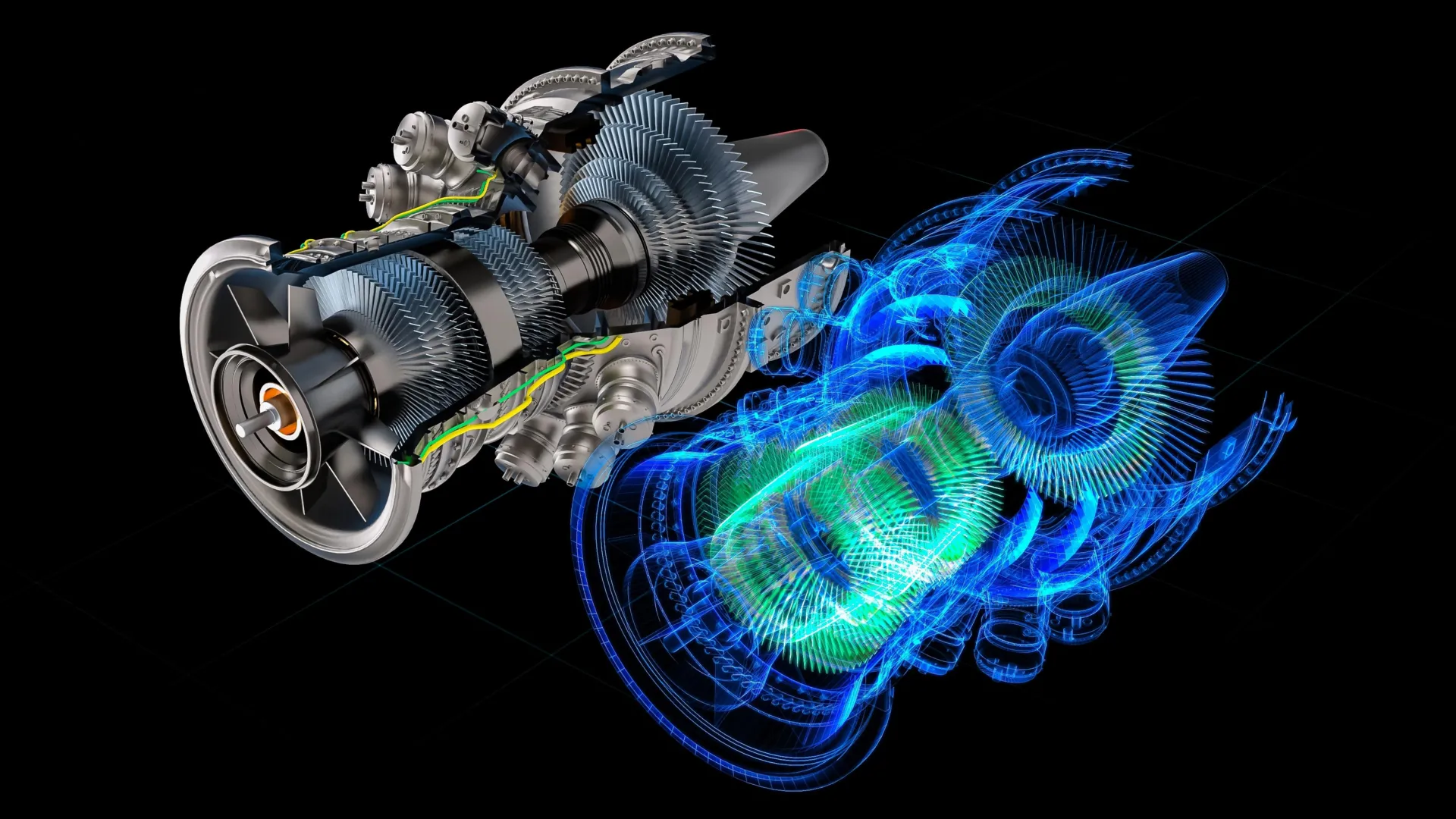THURSDAY, Oct. 23, 2025 (HealthDay News) — Any boozing can cause your blood pressure to go up, a new study shows.
Even slight increases in alcohol consumption are associated with higher blood pressure, researchers reported Oct. 22 in the Journal…

THURSDAY, Oct. 23, 2025 (HealthDay News) — Any boozing can cause your blood pressure to go up, a new study shows.
Even slight increases in alcohol consumption are associated with higher blood pressure, researchers reported Oct. 22 in the Journal…

Philips sued Belkin GmbH, Belkin International Inc., and Belkin Limited, (Belkin) two directors and one managing director (the directors) in the UPC’s Munich Local Division (LD Munich) for infringement of EP 2 867 997. The patent addresses two-way communication and negotiation phases in inductive power transfer systems for charging portable electronic devices, including the role of an “acknowledgement” signal. The patent has been declared essential to the Qi wireless charging standard. In the UPC infringement action, Philips sought cross-border relief including injunctions, damages, disclosure, and product recall. Belkin counterclaimed for revocation.
Previously, the Düsseldorf Regional Court had ruled that Belkin GmbH and Belkin Limited did not infringe in Germany, and the German Federal Patent Court had rejected a nullity action.
LD Munich found that Belkin had infringed and the directors were liable, not as infringers but as intermediaries under Art 63(1) UPCA. The LD Munich issued a permanent injunction against Belkin in Sweden, Belgium, France, Germany, the Netherlands, Italy, Finland, and Austria to refrain and desist, provide information, and pay damages. The directors were also ordered to refrain from exercising their management duties insofar as they led to infringing acts by Belkin outside of Germany. However, the LD Munich refused an order for a product recall. Both sides appealed.
The CoA confirmed the patent’s validity. In doing so, it adopted a detailed claim construction that treated the “acknowledgement” element as a transmitted, indicative message that signals acceptance or rejection of entering a negotiation phase, without requiring the transmitter to be capable of rejection in practice.
The court found that Belkin’s Qi compliant chargers fell within the scope of the EP’s claims, including the acknowledgement behavior prescribed by the current Qi standard.
“Offering” under Article 25(a) European Patent Convention (EPC) is an autonomous concept interpreted in the economic and not the legal sense. There is no need for a legally contractual binding offer. Offering includes the marketing of a product on a website, even without a price. Belkin’s web pages constituted offerings in Italy, France, and the Netherlands, even where the purchase took place via third-party retail links (e.g., Amazon).
The CoA overturned the LD Munich decision against the directors and dismissed the claims against them. According to Articles 63(1) and 25 EPC, an infringer could be someone to whom the infringing acts could be attributable. However, merely holding the position of managing director and controlling the risks of a company does not necessarily make a person an instigator, accomplice, or accessory to the company’s infringement.
A managing director is liable only if his or her actions go beyond the ordinary professional duties of a managing director, e.g., if the director deliberately uses the company to infringe or the director knows the company is infringing and fails to stop it. Reliance on legal advice will generally suffice to negate the requisite knowledge until a first instance infringement decision has been issued.
On the facts of this case, the directors were not personally liable.
The CoA confirmed that corrective measures such as product recall, removal from distribution channels, and destruction, can be ordered in relation to infringing products under Article 63 EPC. This type of relief is the norm, and it is up to the infringer to demonstrate that such measures are disproportionate or will convert the infringing products into non-infringing products. Belkin had not done this.
The injunction did not bind Belkin GmbH and Belkin Ltd in Germany because of the previous Dusseldorf non-infringement judgment already in place. However, this did not bar UPC relief for other territories or other Belkin entities who were not party to the German proceedings. The German decision was not the same in law and fact because it concerned a different national designation of the same patent.

Less than two days ago, OpenAI came out swinging in the fight for the future of the internet with the release of ChatGPT Atlas, an AI-powered web browser it hopes will topple Google Chrome. Adam Fry, OpenAI’s Atlas leader, says the team is…

Classically, it was believed that there was no depression in children and adolescents that could be diagnosed using the same criteria used for adults. However, since the late 1970s, it has become clear that some depression in…

When it comes to famous holes in the ground, northern Arizona has two: Grand Canyon and Barringer Meteorite Crater.
New research now suggests that these famous depressions…

Pakistan Eliminates TTP Commander Hafiz Gul Bahadur in Precision Strikes across Afghan Border as part of a major counterterrorism operation conducted during the night of October 17–18, 2025. According to reliable intelligence…

High-temperature metals are essential for powering aircraft engines, gas turbines, X-ray systems, and other advanced technologies. Among the most heat-resistant are refractory metals like tungsten, molybdenum, and chromium, all of which have…

This article was co-authored by Karim El Sayegh, Paralegal.
On 8 July 2025, the government of Dubai introduced Law No. 7 of 2025 Regulating Contracting Activities in the Emirate of Dubai (“the New Law”). This important piece of legislation will come into force on 8 January 2026, six months after its publication, and will govern all contracting activities and Contractors operating within the Emirate of Dubai, including those in special development zones and free zones, such as the Dubai International Financial Centre (DIFC).
The New Law represents a major step forward in how Dubai regulates its construction and engineering sectors. It establishes the framework for a supervisory hierarchy, with the Dubai Municipality (the “Municipality”) as the ultimate authority, below (or alongside) which sits the “Competent Authority” (i.e. “any other government entity legally competent to supervise and control any contracting activities in the Emirate”, along with the Municipality itself). There is also provision for the establishment of a “Committee for Regulating and Developing Construction Activities” (“the Committee”). Each of these authorities has specified competencies, tasks and powers. The New Law aims to establish a standardised, digital, and unified regulatory framework for all construction activities (e.g. construction, demolition, infrastructure, engineering). It provides a new framework for contractor registration, classification, and oversight, overseen by the Municipality, and aims to improve standards, promote transparency, and support Dubai’s sustainable development and investment confidence in the construction industry.
The New Law complements the existing laws and regulations related to building and planning, and is part of Dubai’s broader ambition to modernise and professionalise the sector, in line with international best practices.
The New Law applies to:
Importantly, it extends to contractors operating in free zones and special development zones (including the DIFC), closing previous regulatory gaps.
Only contracting activities related to airports and their associated infrastructure are specifically exempted. However, further exemptions may be granted by the Chairman of the Executive Council, acting on recommendations from the Committee.
The New Law comprises 29 Articles and sets out the foundational framework. Much of the detail on how the New Law will be implemented will come from regulations and decisions yet to be issued by the Committee or other Competent Authorities, such as the Municipality. In the meantime, existing regulations issued prior to the enforcement of the New Law (such as Dubai Local Order No. 89 of 1994 Concerning the Practice of Engineering Consultancy in the Emirate of Dubai (Order No. 89/1994) and Dubai Local Order No. 3 of 1999 Regulating Construction Works in the Emirate of Dubai (Order No. 3/1999)) will continue to apply until the issuance of substituting regulations, provided they do not conflict with the New Law.
While some of the provisions build on existing practices, the New Law consolidates and formalises them in a more structured and enforceable format. Notable features include:
Mandatory contractor registration
All contractors must be licensed and registered in a new central Register managed by the Municipality, and linked to the “Invest in Dubai” digital platform. Employers will be prohibited from engaging contractors not registered and classified in accordance with the law, and contractors will (as mentioned below) be prohibited from engaging in contracting activities outside the classification category assigned to them.
New classification system
Contractors will be assigned a classification based on their technical, financial and administrative capabilities. This classification will determine the nature and scope of the projects they are authorised to undertake. Contractors can apply to upgrade their classification by meeting enhanced requirements.
This classification system will build upon, and ultimately supplant, the existing framework under:
Professional competency standards
Contractors must employ a minimum number of qualified technical staff, each of whom must hold a “Professional Competency Certificate” issued by the Municipality.
Subcontractor and consortium (JV) regulation
The appointment of subcontractors is not prohibited, but will now be subject to approval by the Municipality or the Committee. Both the main contractor and subcontractor must be appropriately licensed and classified. For larger or more complex projects, contractors may form consortia or joint ventures, but all members must be registered and approved, and one must act as the group’s authorised representative.
Consortia and joint ventures were not previously regulated by Order No. 89/1994.
Recognition of turnkey projects
The New Law formally recognises “turnkey” projects, allowing contractors to undertake design, supervision, and execution under a single agreement. Turnkey projects are said to be subject to conditions which will be set out in future regulations issued by the Municipality.
Conduct and enforcement
A Code of Conduct and Ethics will be introduced. Contractors will be required to comply with applicable laws, avoid exceeding their approved scope or capacity, and notify the Municipality of any changes or incidents. Breaches may result in penalties, suspensions, downgrades, or even de-registration.
Establishment of a permanent oversight committee
The Committee is yet to be established, but when it is, it will proactively oversee implementation and propose further policies and regulations. It will also handle approval of all contracting activities, and the classification of Contractors. It is likely that this committee effectively replaces the Committee of Registration and Licensing established under the Municipality’s resolution No. 32 of 2006.
The New Law will take effect on 8 January 2026. All contractors must regularise their status within one year; that is, by 8 January 2027.
This includes completing registration on the new system, complying with classification requirements, and ensuring all technical staff are properly certified. The Committee, or the Municipality, may extend this deadline, but contractors are strongly encouraged to act early.
Contractors should begin preparations without delay. All contractors must:
The New Law introduces a clear enforcement regime:
The Municipality will retain a right to inspect premises and project sites, seize and review records and enforce penalties.
The New Law is intended to bring significant change to Dubai’s construction landscape:
Higher standards, fewer risks
With stronger classification and competency requirements, the law aims to reduce unsafe practices, technical failures, and project delays. Over time, this should also help curb disputes and improve project delivery.
Enhanced professionalisation and market consolidation
Tighter regulation may raise barriers to entry, particularly for smaller or informal contractors. Some may struggle, ultimately exiting the market, merging, or being absorbed, leading to greater consolidation and a more competitive, professionalised sector.
Increased costs, greater predictability
While compliance may increase operational costs in the short term, the resulting standardisation and oversight should deliver longer-term benefits in terms of reliability, safety, and investor confidence.
Digital transformation and transparency
Integration with the “Invest in Dubai” platform will streamline approvals, allow for performance tracking, and simplify due diligence. Employers and developers will have more data to assess contractor capability before awarding work.
Alignment with global best practice
The New Law represents a further shift toward internationally recognised standards in respect of credentialing, licensing and transparency, and should enhance Dubai’s reputation as a world-class construction hub.
Immediate steps (within Rectification Period)
Organizational readiness
The New Law marks a new chapter in the governance of contracting activities in Dubai. It consolidates existing frameworks, introduces new safeguards, and sets a clear path for regulatory modernisation; a significant evolution in the governance of construction activities in Dubai. While it presents initial compliance burdens, particularly for small and mid-sized contractors, it ultimately lays the groundwork for a more professional, reliable, and scalable construction sector.
For contractors, the message is clear: prepare now. Those who act early and invest in compliance will not only reduce risk but also position themselves to thrive in an increasingly structured and competitive market.
This reform comes at a time when Dubai’s project pipeline is expanding through ongoing residential and mixed-use builds, repurposing legacy developments, green building initiatives, and large-scale infrastructure and development projects, under the 2040 Urban Master Plan. The New Law will likely have the overriding effect of ensuring that only competent, well-structured contractors are awarded critical work, thus reducing the risk of delay and overspend.

Cybersecurity experts are warning that OpenAI’s new browser, ChatGPT Atlas, could be vulnerable to malicious attacks that could turn AI assistants against users, potentially stealing sensitive data or even draining their bank accounts.
The AI…